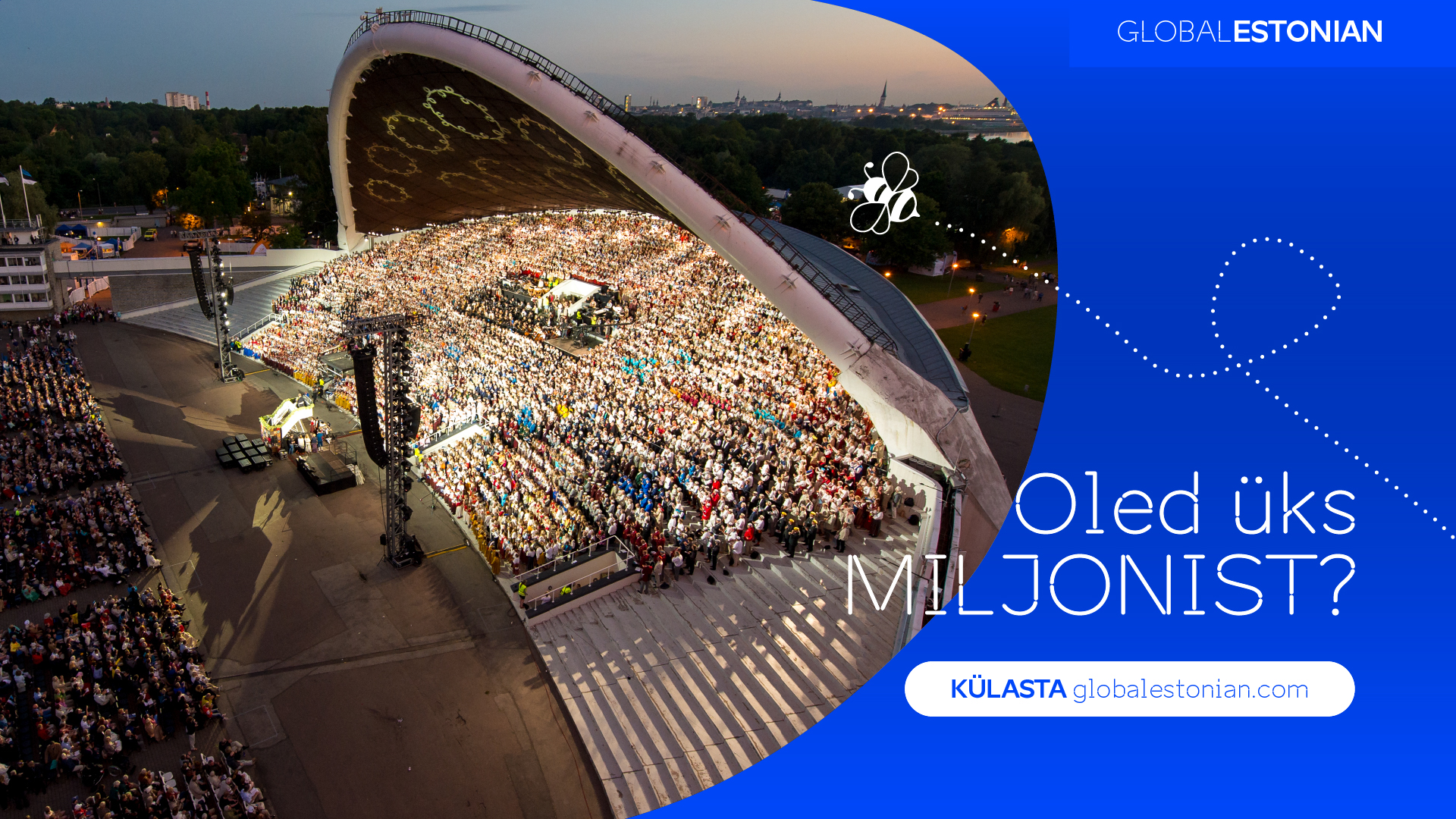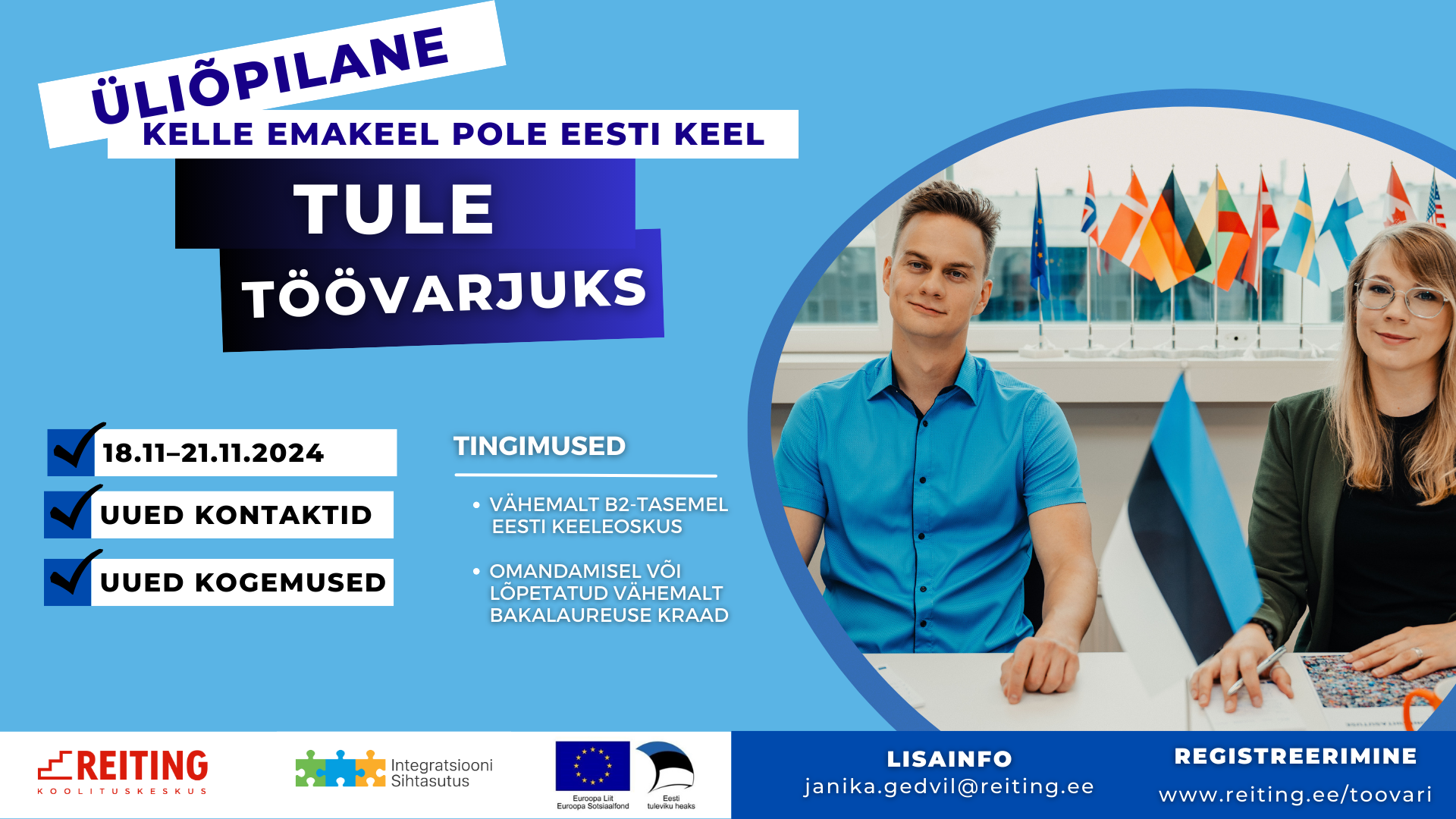
Estonia keeps in touch with nearly 200,000 fellow nationals living abroad through the global Estonian information portal globalestonian.com. The portal gives people living elsewhere who wish to stay in touch with Estonia the opportunity to keep up to date with life in Estonia, participate in language learning, and promote culture and business relations.
According to a survey conducted last autumn, almost 80% of Estonians living abroad are interested in what is happening in Estonia at least once a month. The most popular ways to keep up to date are Facebook (83%), Estonian newspapers and publications (73%), a local Estonian expatriate society or organisation (47%), Instagram (42%), and Estonian national television and streaming platforms (41%).
‘The globalestonian.com information portal is a direct line of communication for us with our fellow nationals in other countries,’ says Kaire Cocker, Head of the Compatriots Service at the Integration Foundation, and adds that almost 200,000 people is a very large number, which underlines the need to maintain and strengthen ties and to be in a common information space with our fellow nationals. ‘It is highly important to provide them with more opportunities to keep in touch with Estonia, thereby increasing the cohesion of Estonian society and the Estonian community worldwide,’ says Cocker. She also believes it is important to talk about the information portal in Estonia and to Estonians more broadly, because in today’s global world, almost all of us have a friend or loved one living abroad. ‘It is important for us that people know about the information portal of global Estonians and that the necessary information reaches as many Estonians as possible,’ notes Cocker.
The information portal offers good advice on practical issues that one may encounter when living abroad and includes a section called ‘Ekspert vastab’ (answers from expert) to this end. The portal gives you information about opportunities to learn the Estonian language and about summer camps for children and young people taking place in Estonia. The state supports young Estonians living abroad who wish to come to Estonia for an internship or to get an education, as well as cultural events organised by societies and communities to preserve the Estonian identity – the information portal of global Estonians offers the most up-to-date information on all of this. The website also offers a convenient way to stay in daily contact with Estonian communities around the world.
In recent years, more than 6,000 people with Estonian roots return to Estonia from abroad every year and the trend is increasing. The portal also includes a section called ‘Returning to Estonia’, where you can find a range of services for a smooth landing in Estonia and take part in meetings with other Estonians who have been through the same journey.
‘Estonians love to repeat three myths about themselves: the Estonian language is the most difficult language in the world; Estonians are the most introverted people in the world; and you can meet at least one Estonian in every port in the world. In our opinion, none of them are true and the information portal and its social media accounts could become a place where such issues could be discussed,’ said Marin Mõttus, Ambassador at Large for the Diaspora of the Ministry of Foreign Affairs.
According to the data of July 2024, an average of 4,000 people use the portal every month and the portal has 2,780 followers on its Facebook account.
The information portal is managed and developed by the Integration Foundation with funding and information from the Ministry of Foreign Affairs, the Ministry of Culture, and the Ministry of Education and Research.
More info:
Kaire Cocker
Head of Compatriots Service
kaire.cocker@integratsioon.ee
+372 5364 4172

